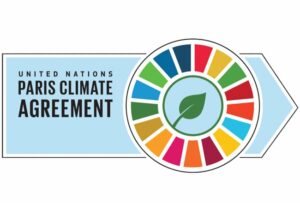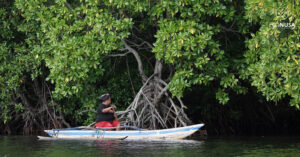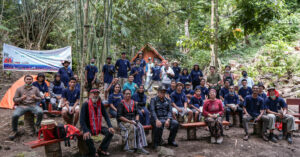Who doesn’t want to go on a vacation to one of Indonesia’s maritime tourism destinations? Indonesia’s underwater world, from Sabang to Merauke, is known for its beauty. We can witness many coral reefs and other rich and colorful marine life under the sea. No wonder that many people from all over the world desire to snorkel or dive in the Indonesian sea.
For those of you who wish to go on vacation to the sea and appreciate its beauty, please remember to be environmentally conscious, too! As more tourists come, the risk of damage to our underwater environment increases. For example, there is an increasing amount of waste in the sea, and many irresponsible people are damaging coral reefs. We’re sure that all of us don’t want to see our sea being destroyed. So, let’s take a look at these 4 tips on how to be an eco-friendly beach & ocean goer!
1. Use reusable bags, instead of plastic bags
Let’s admit it, who still prefers to bring plastic bags to the beach or the sea? For practical reasons and to carry wet items, many individuals still prefer to use plastic bags. However, even if you don’t intend to throw your plastic waste into the water, the plastic bags you carry have a chance of flying or being dragged into the ocean and becoming rubbish.
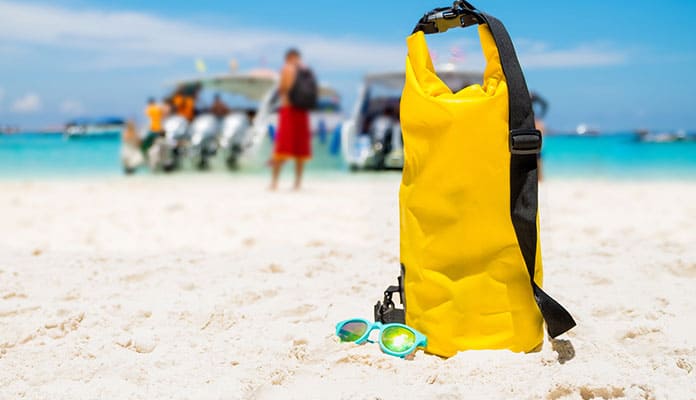
Duh, jangan sampai ini terjadi, ya! Keberadaan limbah plastik di lautan bisa sangat mengancam kebPlastic pollution in the oceans poses a severe threat to the survival of hundreds of marine species. Unfortunately, the International Coastal Cleanup (ICC) reported in 2019 that there were 97,457,984 different types of waste found in the water, totaling 10,584,041 kilos. So, when you go to the beach, it’s much better to not bring any plastic bags. If you’re worried that regular cloth bags will get wet and won’t absorb water, choose waterproof reusable bags, which can be found easily in stores.
2. Use eco-friendly sunscreen
We use sunscreen to protect our skin from sunburn when we go to the beach and sea. However, we must take precautions when choosing the appropriate sunscreen. Many sunscreens apparently contain ingredients that are hazardous to coral reefs and other marine life, such as oxybenzone, octinoxate, 4-methylbenzylidene camphor, and butylparaben.These four chemicals have the potential to increase coral reef bleaching and ultimately destroy them.
So, if you’re looking for sunscreen, make sure it doesn’t contain any of these ingredients! Currently, a number of environmentally friendly sunscreen products have included the label ‘safe for coral reefs’ or ‘reef-safe’ on their packaging.
3. Do not touch or step on any kind of marine biota
Next, here is something to keep in mind when you’re underwater. Indonesia’s underwater world from its coral reefs to its diverse marine animals, will surely astonish us. Sometimes, we are so awestruck that we occasionally want to touch the coral reefs. However, even if you’re intrigued, please do not touch or step on any kind of marine biota.
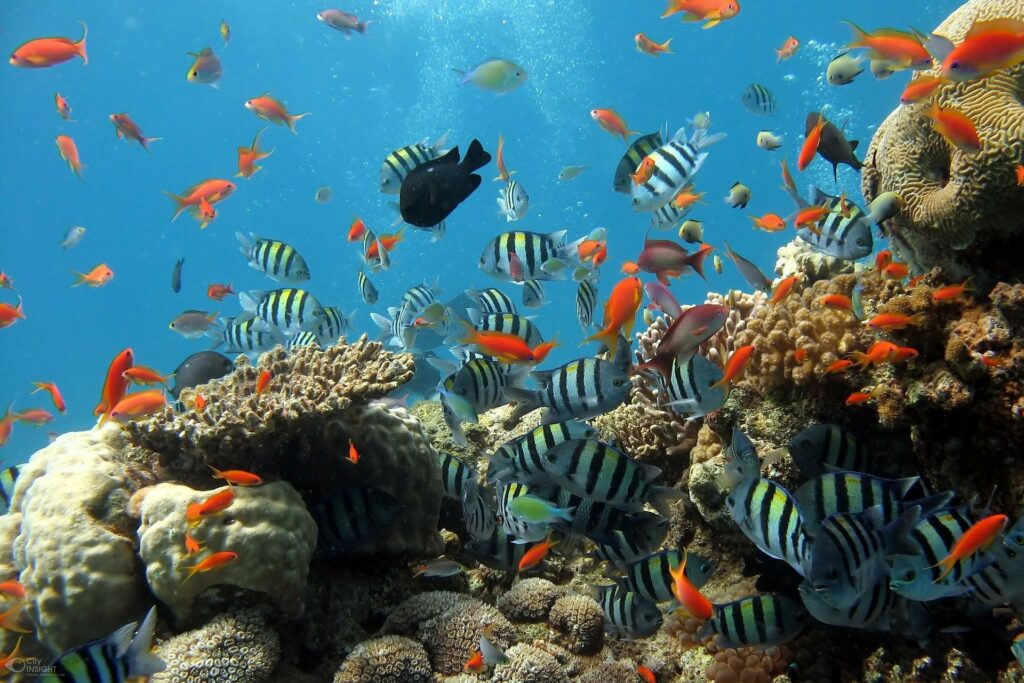
We will not feel threatened if we come into contact with coral reefs. However, our touch with coral reefs, whether with bare hands or with gloves, poses a threat to their survival. Their development can be hindered, and they can die quickly. Then, another dangerous thing that people often do is stepping on coral reefs. Whether done intentionally or not, this action can also stress and damage coral reefs.
4. Please do not litter
This following suggestion, of course, is applicable no matter where you are. When visiting the beach or the water, do not leave even the tiniest amount of rubbish. If you have trash and there isn’t a trash bin nearby, place it in your bag first. Also, if you discover trash in the sea or on the beach, pick it up and dispose of it later in the trash bin.
So, there you have it: four tips to be an eco-friendly beach & sea goer. Going on a sea vacation surely brings you a lot of fun. However, let’s also remember to always be a responsible tourist by making a contribution to preserve the sea. If you want to know more about things that can be done to preserve our seas, you can go to EcoNusa TV YouTube channel and watch various videos from the past Sail to Campus program!






